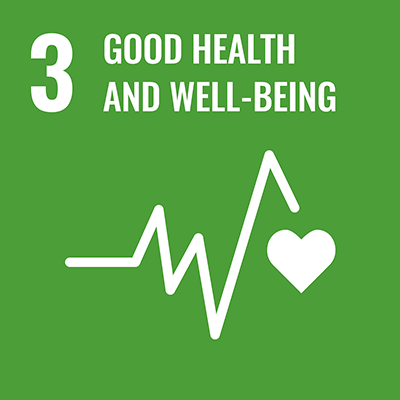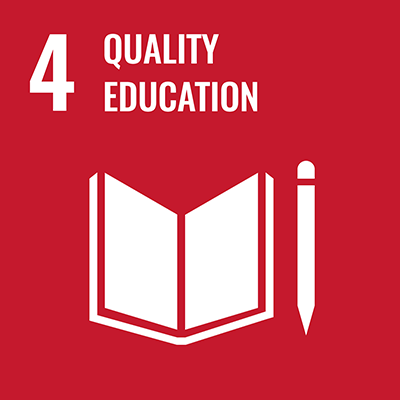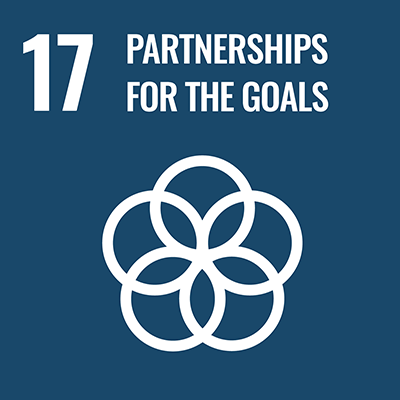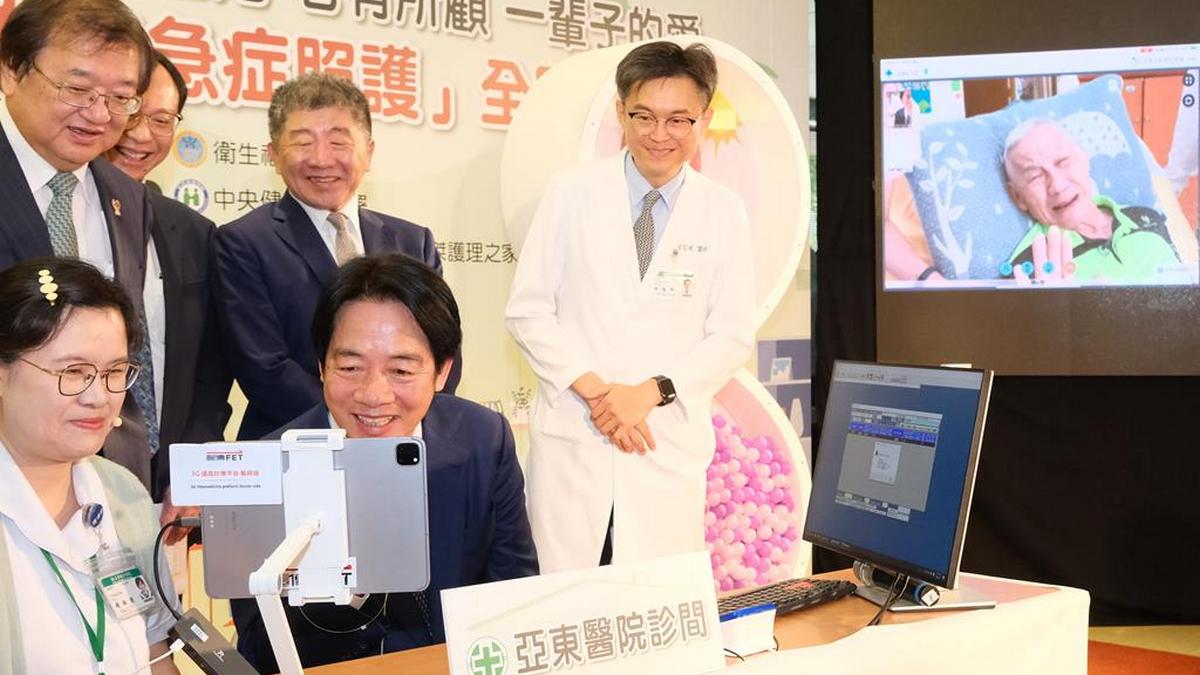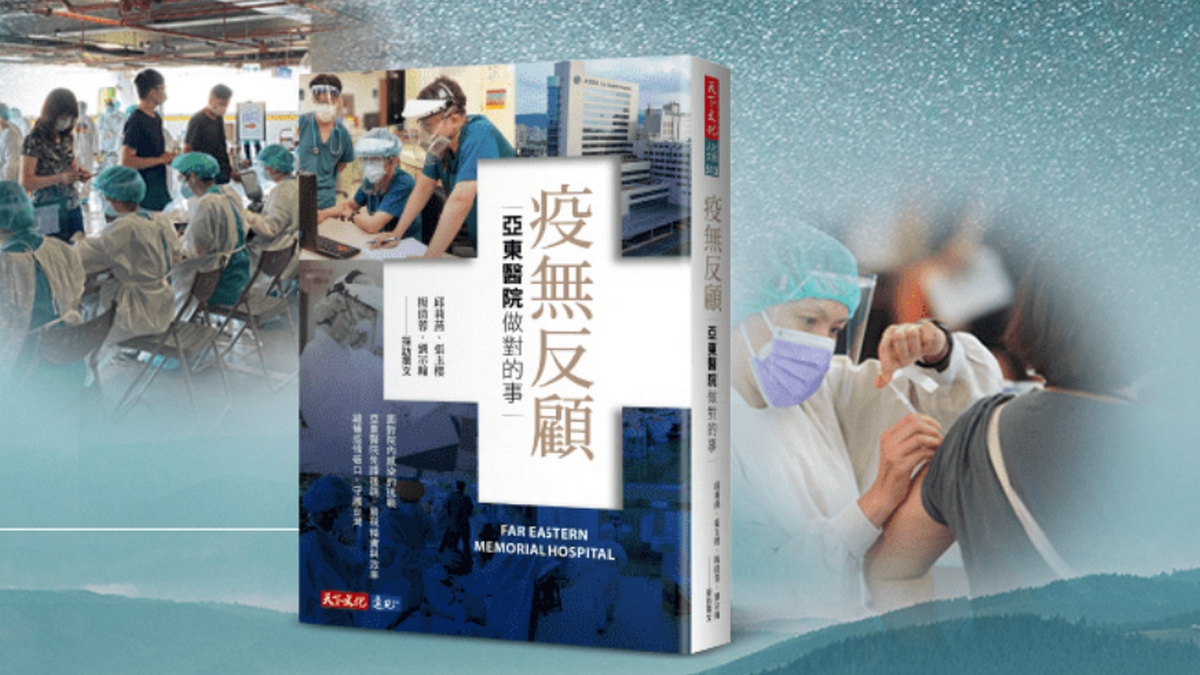FEMH Participates the Medical Resilience Training Program Initiated by MOHW
The Ministry of Health and Welfare (MOHW) yesterday held a news conference to showcase its training program for surgeons’ medical resilience enhancement, which aims to improve the nation’s emergency medical treatment capability and improve survival rates during major disasters. (Photo Credit: Taiwan Surgical Association)
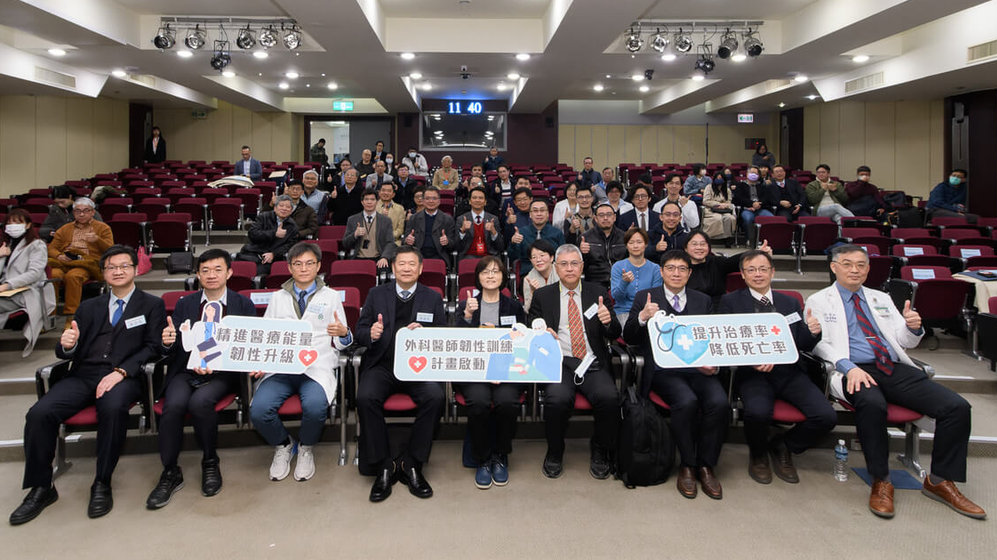
The program is part of the Executive Yuan’s four-year national resilience and healthcare preparedness program approved last year. The ministry has commissioned the Taiwan Surgical Association, Taipei Medical University and Formosa Association for the Surgery of Trauma to co-organize and implement the program.
The news conference was held at Far Eastern Memorial Hospital in New Taipei City yesterday to promote the program and showcase the plans, which include incorporating virtual reality (VR) technology into training.
The program aims to train surgeons and improve their skills to treat trauma in emergency conditions, including traffic accidents, explosions, earthquakes and other major disasters, in the hope of increasing survival rates, Taiwan Surgical Association president Tsai Chien-sung (蔡建松) said.
Left to Right: FEMH superintendent Chiu Kuan-ming (邱冠明), MOHW Department of Medical Affairs Director-General Liu Yueh-ping (劉越萍) and Taiwan Surgical Association president Tsai Chien-sung (蔡建松). Photo Credit: FEMH
The surgical departments have been making progress toward achieving more precise and minimally invasive methods for performing surgeries, but these skills might not be as applicable in the event of major disasters, Far Eastern Memorial Hospital superintendent Chiu Kuan-ming (邱冠明) said.
Through the training program, younger surgeons, who might be unfamiliar with treating major injuries, can reignite their passion, deepen their knowledge and develop the skills to handle the worst scenarios, he said.
Tsai said that aside from gathering more than 100 experts and healthcare professionals with deep clinical experience to develop in-person courses and videos, the program would also incorporate VR technology.
The ministry also plans to train more than 10,000 healthcare practitioners, he said.
The Taiwan Surgical Association said VR technology can also allow participants to practice treating serious injuries, including emergent airway management, traumatic pneumothorax (a collapsed lung) treatment and wound packing and tourniquet applications, in simulated high-pressure scenarios.
Quick response and increasing survival rates are two important factors in treating injuries in major disasters, and sometimes the open wounds might be very large, so aside from precision and smart surgery skills, other surgical methods acquired in the training program would also be needed, MOHW Department of Medical Affairs Director-General Liu Yueh-ping (劉越萍) said.
With in-person courses and VR-simulated training, the misnitry hopes to establish the principles for emergency trauma and casualty treatment in disasters, and help improve healthcare professionals’ surgical skills to respond to disaster, Taiwan Surgical Association’s trauma committee head Lin Heng-fu (林恆甫) said.
Business and Company
News Type
UN SDG
Share
Download
Source
Taipei Times By Lee I-chia



